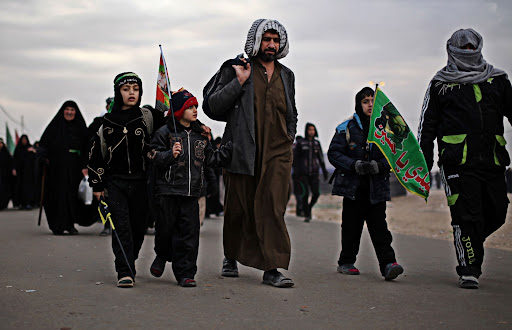This paper analyzes motivations and experiences of foot-pilgrims in their journey to Karbala(Iraq) during the 1 Arbaeen pilgrimage. The study deploys an interpretivist paradigm consisting of a phenomenological approach and incorporates the Shia Islamic worldview to synthesize the findings. Findings reveal that Arbaeen foot-pilgrim's motives are driven by perpetual rituals practiced by the Shia community, and concern for society (umma). The 'umma' element recurred as a key motive for those who repeated the Arbaeen foot-pilgrimage. The experiential component emerging of the results indicate: religious; bodily; and hospitality/humanitarian aspects to be the significant elements of experiences. Managerial implications including future planning and policy are deliberated. Highlights: A study of the Islamic foot-pilgrimage offers an addition to the existing route-based pilgrimages. The Arbaeen pilgrimage is the largest annual pilgrimage and is discussed with reference to the foot-pilgrimage concepts. The impact of rituals is a vast area of research, awaiting further exploration. The role of society is a useful concept in relation to Islamic foot-pilgrimage. A deliberation of the Karbala-Najaf trail expands the available literature on foot-pilgrimage routes.link

